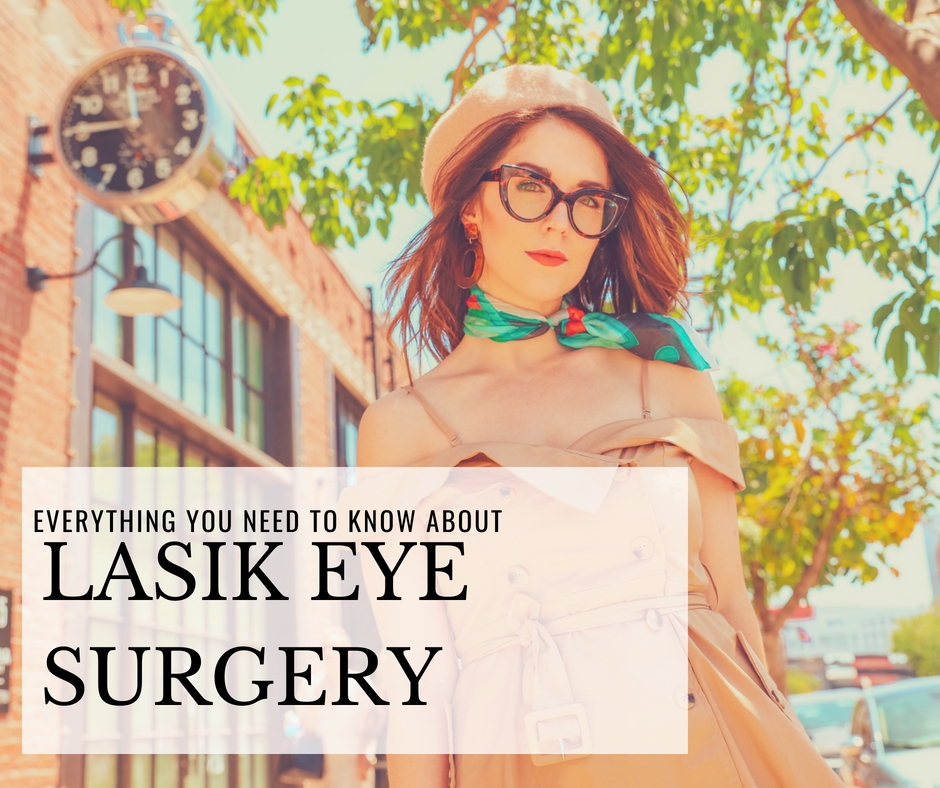

This post contains sponsored content, however, as always, all opinions and ideas are my own!
One thing that I have really been considering lately is LASIK eye surgery. Contacts and glasses have been a part of my daily life since 7th grade, and I can’t say that the experience is one that I enjoy. Recently, I’ve been struggling with constant dry and irritated eyes, which in turn cause my eyes to constantly water and ruin my attempts at fun eye makeup…nobody likes that! LASIK is something I’ve always thought about getting, but the thought of the surgery has always made me a little nervous. You too? Great. I decided to get all the info on this procedure so that I can make an informed decision, and hopefully you can too!
In order to get the best info I could, I decided to go straight to the source. The Refractive Surgery Council was kind enough to partner up with me to answer all my questions about LASIK eye surgery. When I had the chance to meet with Dr. Robert Maloney himself, I jumped at the chance to discuss the procedure and learn if I am a candidate for LASIK.
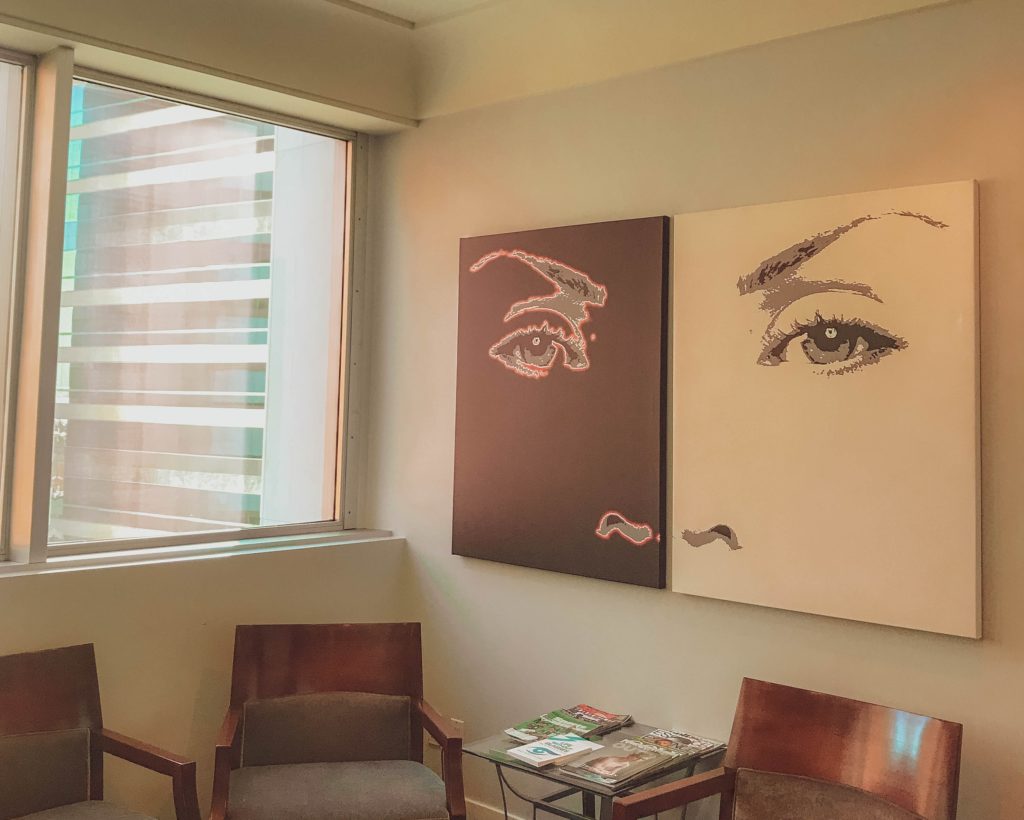
Dr. Maloney’s reputation proceeds him, as he is considered one of the best eye surgeons in Los Angeles and has been part of the evolution of refractive surgery since the original FDA trials in 1991. You really could not be in better hands than the Maloney Vision Institute.
Why get LASIK Eye surgery?
I was shocked to learn how damaging contacts really can be for your eyes. I try to be vigilant about taking them out every night and cleaning them in my solution, but even with best practices, you can still do damage to your eyes with contacts. I’ve definitely had mild eye infections from contacts in the past, but I was shocked to learn that it is fairly common to get more serious infections from activities such as swimming in the ocean. These infections can leave long term damage to your eye, such as scars. Less devastating, but definitely more common and annoying is constant dry eye with contacts. Another huge consideration is the fact that while LASIK is a big investment up front, you actually will be saving money over the course of your lifetime by not having to buy new contacts or glasses every year, on top of all the solution and eye drops and everything else you need as a glasses or contacts wearer.
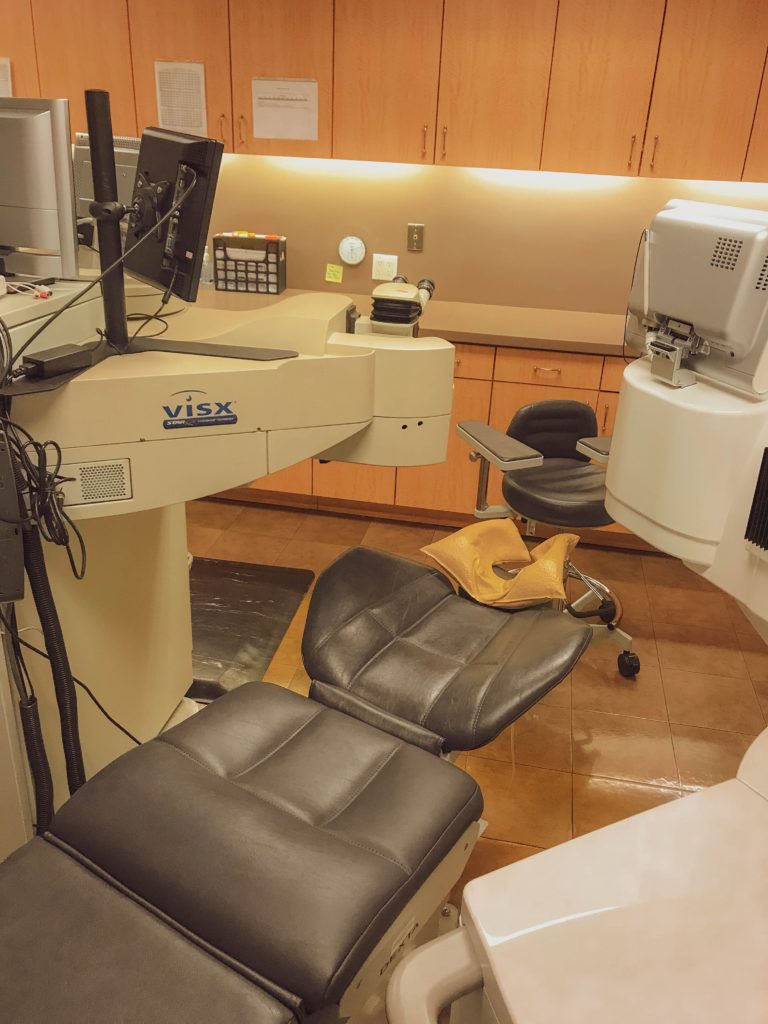
Who is a good candidate for LASIK Eye surgery?
- Stable Vision
- Your prescription can’t be too high: If your prescription is upwards of -7, you may need to explore other options such as implants
- Strong desire to be rid of contacts
- Healthy Eyes
How does LASIK Eye surgery work?
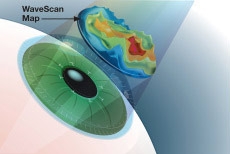
- 1st Step: In order to start the process of LASIK Eye surgery, you will need to first get a consultation to learn if you are a good candidate for the procedure. During your consultation, your eyes will be measured for their degrees of nearsightedness and farsightedness and whether or not LASIK Eye surgery is the right choice for you.
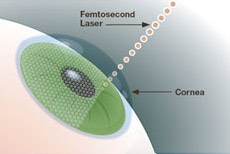
- 2nd Step: Creation of the flap. This is the point in the surgery where super fast and highly accurate lasers cut a flap in your eye. This takes less than 20 seconds per each eye.
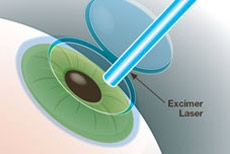
- 3rd Step: The lasers then use ultraviolet light to reshape your cornea so that you can have excellent vision without the need for lenses.
The entire procedure is incredibly fast and downtime is super minimal, as many patients report being able to see perfectly just hours after their procedure is completed. One thing that I was personally very concerned about is the fact that you technically have to be conscious for this surgery and I was not too keen on being awake while lasers go to town on my eyes. Dr. Maloney assured me that given the medication you are prescribed before the procedure, you will likely be too “out of it” to realize what is actually happening, and some patients say that they have no memory of the procedure itself.
Will LASIK Eye surgery hurt? Are there side effects and/or risks involved?
The LASIK procedure is not painful, and it takes less than a minute per eye. At most, all you will feel is a little pressure around your eye. With any procedure comes the chance of side effects, but with LASIK, they are minor. Some people report their eyes feeling a little dry for a while or experiencing glare with lights at night. As for risk, the lasers used are highly accurate and thus risk is super minimal as well. They are built to account for the natural movements in your eye during the procedure, so you don’t have to worry about maybe moving your eye too much during the procedure and creating issues for the lasers.
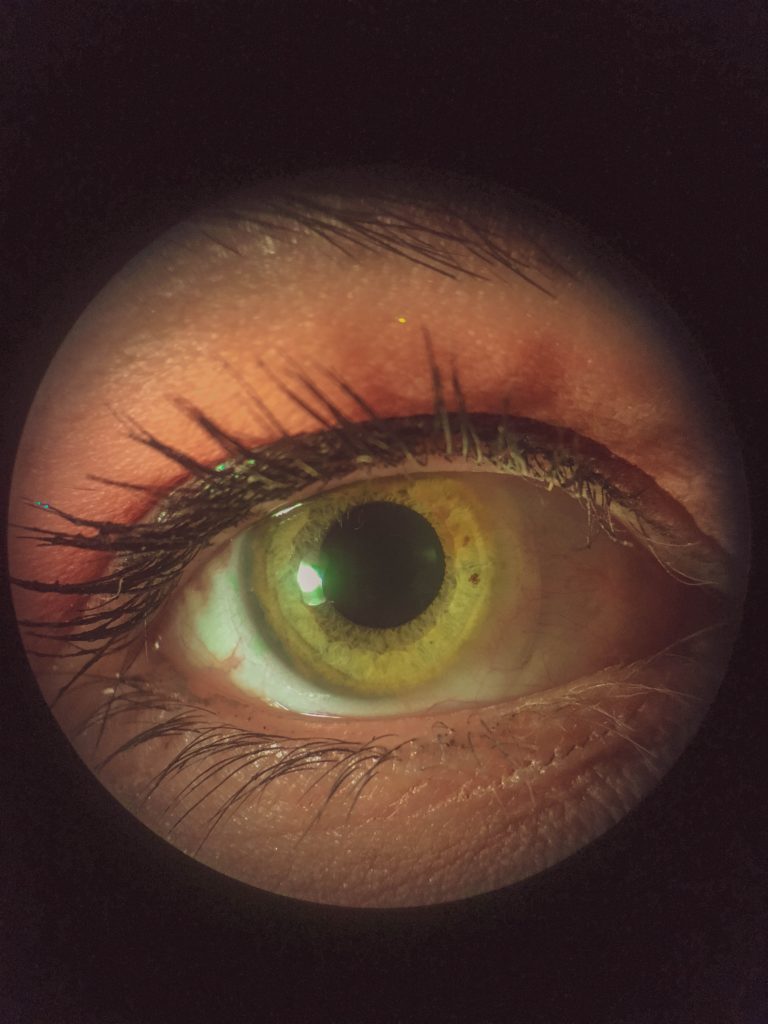
How long does LASIK Eye surgery last?
LASIK is essentially permanent, although some people do need to do a slight touch up but only after a long while has passed. LASIK does not “freeze” your eyesight into 20/20 vision, and your eyesight can potentially decrease as the years progress, which is why you should wait to get the procedure until after your vision has stabilized. The best years to get this procedure is from age 25-35, which is why I’m really considering getting this done soon! It really is a great investment when you think about the money you will save over your lifetime of not needing to buy all the things associated with contacts and glasses, as well as the ease of living life with perfect vision!
I hope you all have enjoyed this post and learned a lot about LASIK Eye surgery! If you have any questions, comment them down below and I’ll do my best to answer them! Also, if you’ve had LASIK yourself, I’d love to hear more about your experience!
Let’s Get Social! >> Youtube | Facebook | Instagram | Twitter
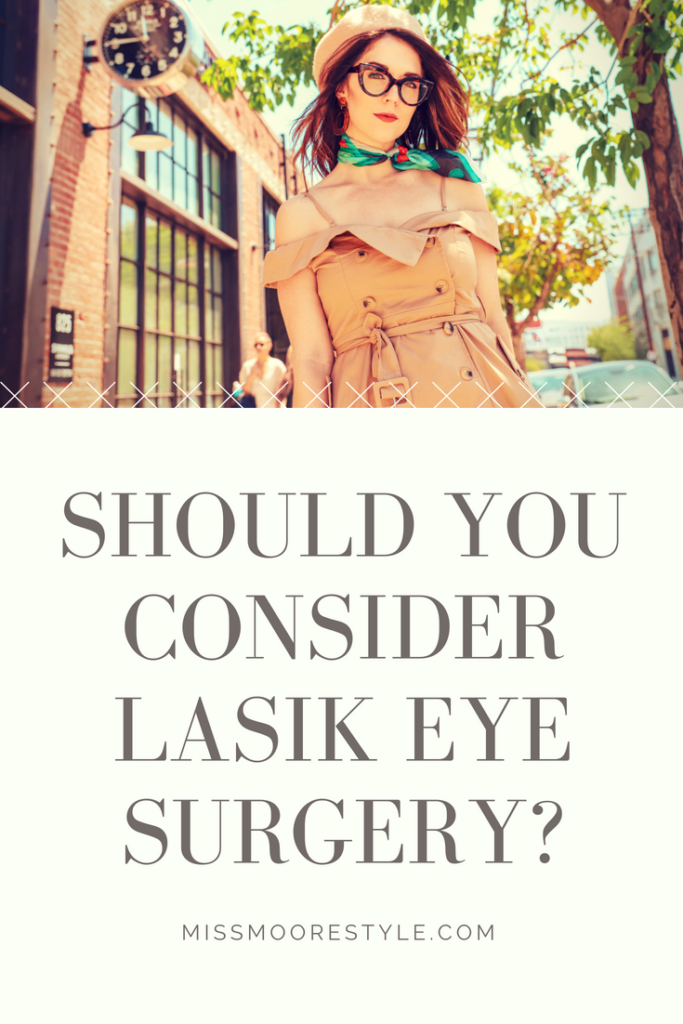
contact wearer contacts corrective eye surgery eyesight glasses laser eye surgery LASIK lasik eye surgery medical procedure




